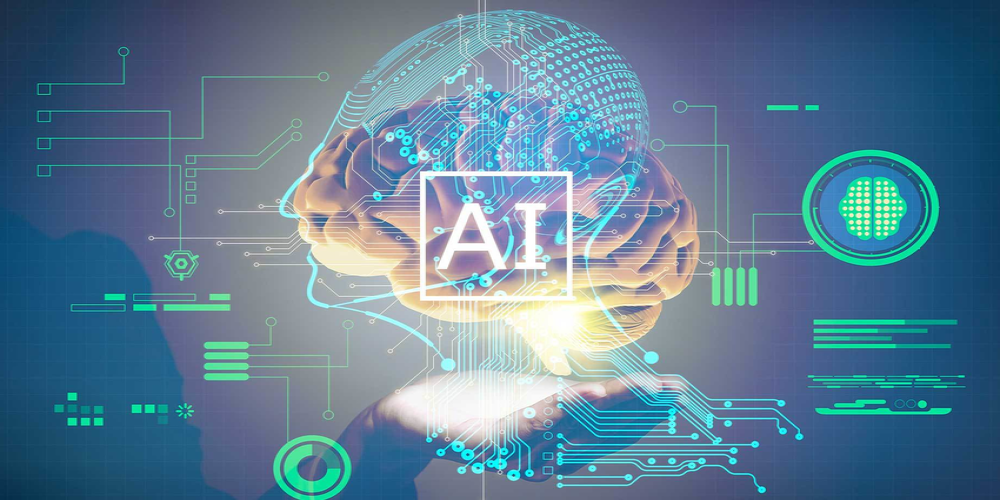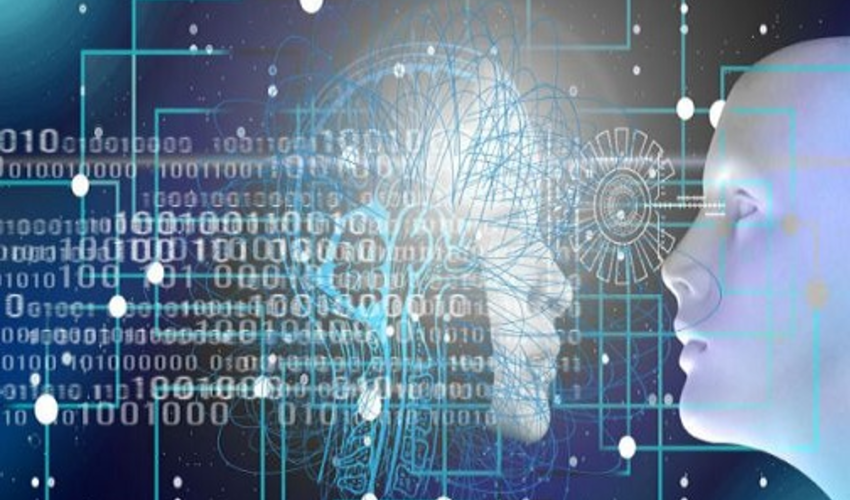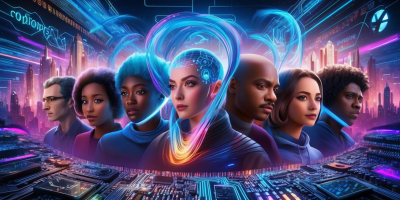Demystifying the AI Revolution: A Comprehensive Guide to Artificial Intelligence
- Jun 11, 2023

Artificial Intelligence (AI) is undoubtedly the buzzword of the 21st century. With its rapid development and integration into various aspects of our lives, it has become imperative for everyone to have a basic understanding of AI and its implications. This comprehensive guide aims to provide an overview of AI, its history, applications, and potential impact on our future.
Tracing the Roots of AI: A Brief History
Although the term "Artificial Intelligence" was coined in 1956, the idea of creating machines that can think and learn dates back to antiquity. The history of AI can be divided into three major eras: pre-AI, classical AI, and modern AI.
In the pre-AI era, the concept of intelligent machines was limited to mythology and fiction. However, it laid the foundation for future developments by sparking human imagination and creativity. The classical AI era began in the mid-20th century with the emergence of computer science and the development of electronic computers. Researchers like Alan Turing and John McCarthy played crucial roles in laying the groundwork for AI research and development.
The modern AI era began in the 1990s with the introduction of machine learning algorithms that enabled computers to learn from data. This era has witnessed an explosion in AI research, development, and application, fueled by the exponential growth in computing power and the availability of massive datasets. AI has now become an integral part of various industries, including healthcare, finance, transportation, and entertainment.
Understanding AI: Terminology and Concepts

AI can be broadly classified into two categories: narrow AI and general AI. Narrow AI, also known as weak AI, refers to AI systems designed to perform specific tasks, such as image recognition or language translation. These systems are limited in their capabilities and cannot perform tasks beyond their designated functions. Examples of narrow AI include Siri, Google Assistant, and self-driving cars.
General AI, also known as strong AI or artificial general intelligence (AGI), refers to AI systems that possess human-like intelligence and can perform a wide range of tasks. The development of AGI is the ultimate goal of AI research, but it remains a distant and elusive target. Many experts believe that we are still decades away from achieving AGI if it is even possible.
Some of the key concepts and techniques in AI research include machine learning, deep learning, neural networks, natural language processing, and computer vision. Machine learning refers to the process by which computers learn from data, allowing them to improve their performance on a task over time. Deep learning is a subfield of machine learning that focuses on neural networks with multiple layers, enabling the learning of complex patterns and representations. Neural networks are computational models inspired by the human brain, consisting of interconnected nodes or neurons that process and transmit information. Natural language processing deals with the interaction between computers and human languages, while computer vision focuses on enabling computers to interpret and understand visual information from the world.
AI in Action: Applications and Use Cases
AI has found its way into a multitude of applications across various industries, transforming the way we live, work, and interact with the world. Some notable use cases of AI include:
- Healthcare: AI-powered diagnostic tools can analyze medical images and data to identify diseases, predict patient outcomes, and recommend treatment plans. AI is also being used to develop personalized medicine, optimize drug discovery, and improve patient care through virtual health assistants.
- Finance: AI algorithms are used to detect fraud, assess credit risk, and make investment decisions. Robo-advisors use AI to provide personalized financial advice and manage investment portfolios.
- Transportation: AI is at the core of self-driving car technology, enabling vehicles to navigate complex environments and make real-time decisions. AI-powered drones are being used for surveillance, agriculture, and disaster management.
- Entertainment: AI algorithms are used to recommend movies, music, and other content based on user preferences. AI-powered chatbots and virtual assistants provide personalized customer support and enhance user experience.
- Manufacturing: AI-powered robots and automation systems are transforming the manufacturing landscape, improving efficiency, reducing human error, and enabling mass customization.
These are just a few examples of how AI is reshaping various industries and impacting our daily lives. As AI technology continues to advance, its applications and use cases will only grow in number and complexity.
The Future of AI: Opportunities and Challenges
As AI continues to evolve and integrate with our lives, it presents a multitude of opportunities for economic growth, societal improvement, and technological advancement. AI has the potential to revolutionize healthcare, democratize education, enhance communication, and address pressing global challenges such as climate change and food security.
However, the rapid advancement of AI also brings with it a host of ethical, social, and economic challenges. Concerns about job displacement, data privacy, algorithmic bias, and the potential misuse of AI for malicious purposes have sparked intense debate among experts, policymakers, and the public. Ensuring the responsible development and deployment of AI technologies is critical to maximizing their benefits and mitigating potential risks.
In conclusion, the age of AI is upon us, and understanding its history, applications, and implications is crucial for navigating this brave new world. As we continue to explore the potential of AI, we must strive to harness its power for the greater good while remaining vigilant to the challenges it presents. Embracing AI as a tool for progress and innovation, rather than fearing it as a harbinger of doom, is the key to unlocking its vast potential and shaping a better future for all.
Latest Reviews
-
![Copy My Data]() Copy My Data Tools
Copy My Data Tools -
![Amazon Alexa]() Amazon Alexa Lifestyle
Amazon Alexa Lifestyle -
![Google Classroom]() Google Classroom Education
Google Classroom Education -
![Cisco Webex Meetings]() Cisco Webex Meetings Business
Cisco Webex Meetings Business -
![Chase Mobile]() Chase Mobile Finance
Chase Mobile Finance -
![Move to iOS]() Move to iOS Tools
Move to iOS Tools
Latest Articles
-
![Sun-Kissed Saga: Unfolding a Summer of Immersive Adventure]()
- Jul 22, 2025
-
![Independent Horizons: A New Era in Horror and RPG Innovation]()
- Jul 22, 2025
-
![Fusing Realities: Humanity Meets Code in a New Digital Frontier]()
- Jul 22, 2025
-
![Innovative E-Ink Experience: The Ultimate Bundled Digital Reader and Note-Taking Tablet]()
- Jul 08, 2025











